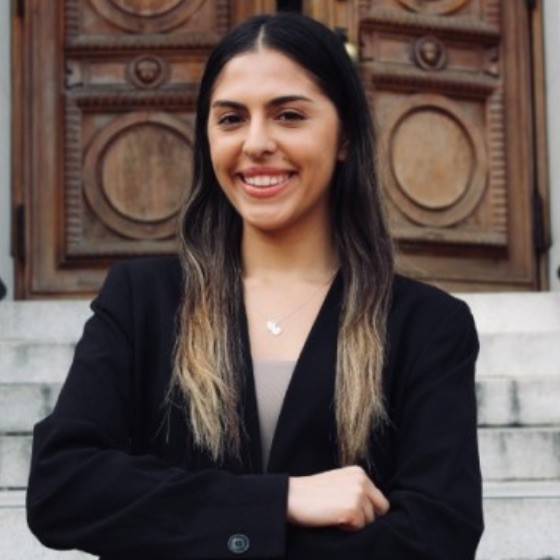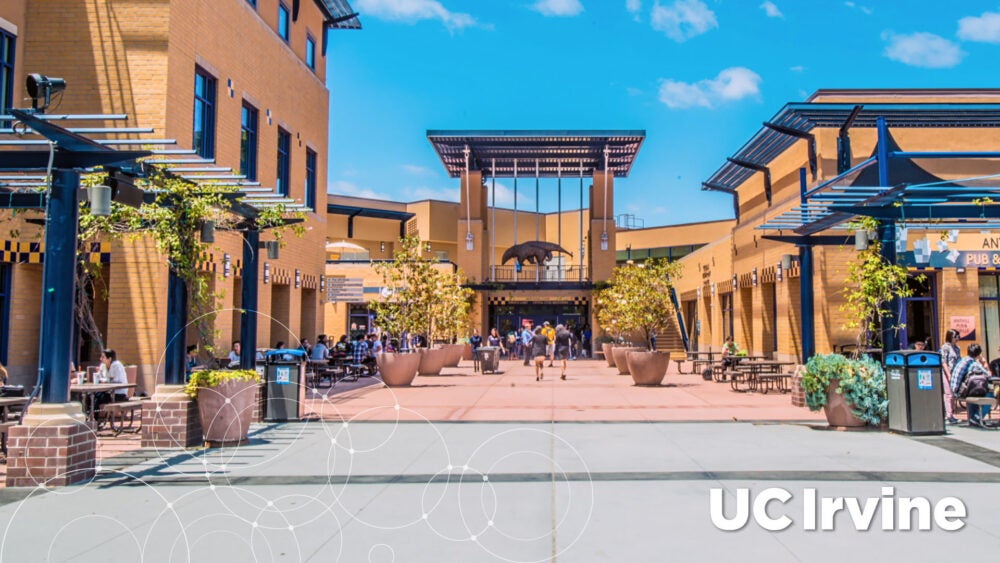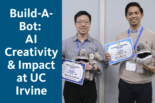UC Irvine created the first artificial intelligence (AI) platform designed specifically for students—and made it free for the entire campus. By April 2024, UC Irvine became the first UC undergraduate campus to provide unrestricted AI access to all students, while also launching ZotGPT Creator, which enables faculty and staff to design custom AI assistants for classrooms, departments, and even public-facing websites.
The UC Irvine Office of Information Technology (OIT) team was recently nominated for a UC Tech Award and met with UC Tech News to share their story with the community.
A secure alternative to commercial AI – where speed + safety was key to helping students where it affected them the most
ZotGPT began as a simple chat app in November 2023, built with one priority in mind: protecting university data. From the start, all inputs stayed within UC systems, meeting the highest standards for compliance and security. After initially focusing on staff users, the team expanded the product to serve students.
The timing was critical. Thousands of students were already paying $20 per month for premium AI subscriptions, often uploading sensitive lecture notes or proprietary content into commercial tools not approved for academic use.
“From the beginning, we ensured that no data entered into ZotGPT leaves the university,” said Chris Price, AI lead and software solutions architect. “We built this platform so the UC Irvine community could experiment with artificial intelligence in a safe, trusted environment.”
Providing a no-cost, high-value solution for students
The initiative was not only about protecting intellectual property and student privacy but also about equity and quality.
“We wanted to provide not just an alternative, but one that was better,” explained Xanat Hernandez, communications director for OIT. “Especially when we had students who were paying for this, and others who simply could not afford it.”
By making ZotGPT free for all, OIT estimates the value for students at $100 per month, with added benefits from customization for UC Irvine’s academic environment.
Fighting misinformation and building trust
Adoption did not come without hurdles. Some students questioned the platform’s privacy, with memes circulating on Reddit that joked, “Nice try, FBI.”
To build trust, OIT launched a misinformation-fighting campaign using social media, campus events, and myth-busting videos. The results were clear: student users grew from 4,000 to 11,000, and average logins per student rose from four to seven. In one quarter alone, ZotGPT recorded more than 100,000 messages.
“Ensuring privacy was our priority,” said Price. “We wanted our campus community to feel confident experimenting with AI.”
How to leverage the new technology
Unlike commercial platforms, ZotGPT is modular. Each instance—whether ClassChat, Creator, or the general app—runs on isolated infrastructure with its own policies. Faculty can view student questions in ClassChat by design, while private use remains fully protected under UC policy.
Still, effective use requires education.
“Our biggest challenge now is teaching faculty, staff, and students how to use the technology effectively,” said Sarkis Daglian, director of AI at UC Irvine. “We cannot simply ask ZotGPT a question and walk away, assuming the answer is correct. Human involvement remains essential.”
To address this, OIT launched the ZotGPT Academy, a set of four 30-minute training modules paired with a prompt library. Dominic Slauson, generative AI specialist, leads workshops across campus to help faculty and staff apply AI effectively in their work. The team is also in discussions with the UC Office of the President AI Council about scaling the Academy across the UC system.
Preparing students for the workforce of tomorrow
For Daglian, ZotGPT is more than a tool—it represents a workforce readiness initiative.
“I have been at UC for 25 years, and I believe we are at the same kind of moment we faced with the internet in the early 2000s or mobile in the late 2000s,” Daglian said. “AI is that next major shift. The challenge is preparing students for the workforce of tomorrow, while also helping staff move away from routine tasks so they can focus on high-impact contributions.”
What’s next: exploring agentic AI
The ZotGPT team is now investigating agentic AI systems—AI that can take actions on behalf of users. The opportunities are significant, but so are the risks.
“With agentic AI, we are facing major security concerns,” Price noted. “Even leading research universities are only beginning to explore how to deploy it safely. That perspective helps us continue to innovate in ways that respect our community.”
Conclusion
ZotGPT reflects UC Irvine’s vision of a no-compromise AI platform for higher education: secure, inclusive, and constantly evolving. By prioritizing equity, countering misinformation, piloting new projects, and preparing students for the workforce, the ZotGPT team is positioning UC Irvine—and the UC system—at the forefront of AI in higher education.
🚀 Impact at a Glance
- 20,000+ unique users since launch
- 15,000 students logging in over 145,000 times
- 3,600 faculty and staff logging in over 80,000 times
- 10+ cutting-edge AI models available (Claude Opus 4.1, GPT-5, Google Gemini 2.5 Pro, DeepSeek-R1, and more)
- 3,000+ artworks cataloged at the Langson Institute & Museum of California Art
- 38 ClassChat implementations across six academic schools
- 585 Creator Assistants
ZotGPT Suite
ZotGPT Chat for brainstorming, planning, and productivity
ZotGPT API for researchers and developers
ZotGPT ClassChat for the classroom
ZotGPT Creator for building custom AI assistants from your own materials
ZotGPT Academy for AI upskilling
👉 Learn more and access ZotGPT training resources at [UCI OIT ZotGPT site link].
Contacts

Xanat Hernandez
Communications Director
University of California, Irvine

Sarkis Daglian
AI Director
University of California, Irvine

Chris Price
AI Lead Software Solutions Architect
University of California, Irvine
Author

Stephanie Leivas
UC Tech News Summer Intern
UC Berkeley student







